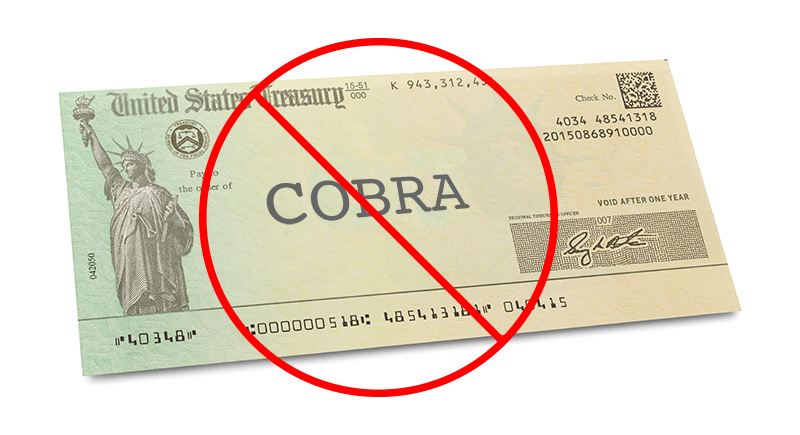
Big businesses, insurance companies, hospitals, unions, and liberal policy groups are calling on Congress to subsidize COBRA policies to ensure that the recently unemployed can maintain their employer-based health insurance coverage. While the goal is understandable, the policy is misguided and would create a series of problems.
As such, Congress should avoid taking this action. First, subsidizing COBRA policies would further weaken the economic recovery. Congress already has made it more attractive for tens of millions of people to be unemployed than to work, with its massive unemployment benefit increase that lasts until August. Many businesses have reported this is making it extremely difficult, if not impossible, for them to re-open. Providing a COBRA subsidy would further weaken workers’ incentive to return to work and would likely spur a new round of layoffs as employers could lay off workers without worrying they would lose their health insurance coverage.
Second, a COBRA subsidy represents corporate welfare since the premium payments would go directly to health insurance companies. This seems particularly ill-timed since insurance companies already are benefitting financially from the mass cancellation of elective health procedures. Moreover, Congress has provided a $175 billion bailout fund for hospitals, partly to care for COVID-19 patients.
If Congress wants to provide assistance for Americans to better afford health care, the help should go directly to the consumers who need it and let them decide the types of coverage that are best for them. Senator Ted Cruz has a pandemic health savings account bill that represents a building block for a far better alternative to a COBRA subsidy. And fortunately, the Trump Administration expanded short-term health plans, which are particularly well suited to provide affordable coverage for those dislocated by the economic shock of the pandemic. Short-term plans are available in many states for as little as three percent of the expanded unemployment benefit and are an important option for many people who have a temporary need for health insurance.
Casey Mulligan
Chief Economist, White House Council of Economic Advisers 2018-2019
Economics Professor, University of Chicago
Brian Blase
Special Assistant to the President 2017-2019, White House National Economic Council
Senior Research Fellow, Galen Institute
Doug Badger
Special Assistant to the President 2003-2004, White House National Economic Council
Senior Research Fellow, Galen Institute
